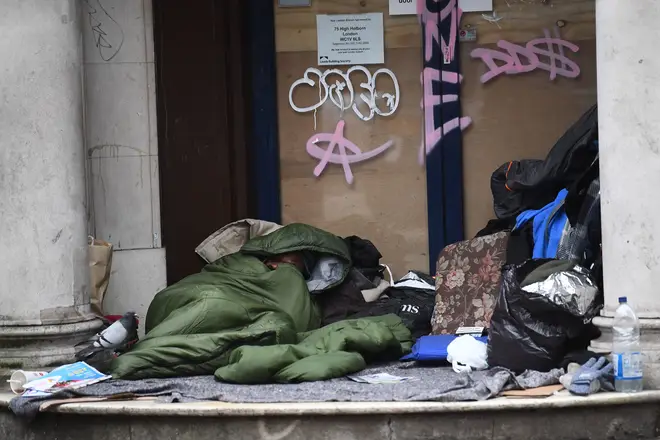
Natasha Devon 6pm - 9pm
15 July 2020, 15:12 | Updated: 15 July 2020, 15:31

Homeless caller explains how government can help people get on their feet
The government need to provide support for people to "get back into the system" as well as helping people already in the system during the pandemic.
Shelagh Fogarty was taking calls from people who have had their confidence dashed during the coronavirus crisis through job losses or difficulties navigating government support. This caller, who said that she had battled homelessness prior to the crisis observed that "there are no financial helps to assist you and move on."
She revealed to Shelagh that while homeless "you have no technology, no computer, no smart phone, no way to connect to the outside world" and during the crisis these issues were heightened.
"Even if you did have corona, there is no way you could have contacted anyone."
The caller told Shelagh that the homeless are not just rough sleepers on the street and although she commended the government for helping these people "there are other people out there that are just left with no help whatsoever."
"How do you get back into the system when there's absolutely no help for you" she said.

The caller told Shelagh that "if they really want to help the people" get back into society, they should treat people that have fallen out of the system in the same way they're treating people that are falling on hard times because of coronavirus.
She referenced the schemes opened and boosted during coronavirus that are available to people within the system and wondered why people outside of the system can't avail of these schemes.
The caller noted that they're coming up with all of this money "it's all for people who are within the system, but there is nothing for the people out of the system."
"All the people who are out of the system, still within working age, they are the exact same as the people who are on furlough now who don't know if they'll have a job after furlough because they don't know if their company is gonna be still there."
Shelagh agreed with the caller's argument, noting that "whatever people's circumstances are, it's about re-connecting them to the system."
Listen & subscribe: Global Player | Apple Podcasts | Google Podcasts | Spotify